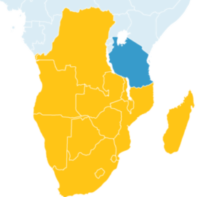What are the most important future research questions in East Africa

What are the most important future research questions in East Africa
Alesia Ofori, Anna Mdee, Victor Kongo (Water Knowledge Exchange Hub )
Introduction
There are a volume of articles that highlight the importance of making policy decisions based on rigorous and reliable evidence. How.ever, the question of how researchers identify which questions require immediate attention, energy and effort remains elusive. In most academic spaces and Sub Saharan Africa, research agenda-setting is influenced by factors such as the agenda of funding and aid bodies, Universities’ research priority, or the researcher’s interest. In recent times, there have been several exercises to open up the research agenda-setting to a wider audience. In Sub-Saharan Africa, such research exercises are lacking in many spaces and sectors. What is evident in Sub-Saharan Africa is that some of these exercises are, by default, available to a few academicians who have managed to establish their links and initiatives. This has led to uncoordinated efforts in deciding which research questions need to focus on.
In 2019, water@leeds, one of the largest interdisciplinary water research group located in the University of Leeds conducted a global survey, requesting the wider global audience to identify priority research questions that researchers need to address and answer in the future. What was different about this exercise was the opportunity it gave for wider audience participation. Thus, practitioners, policymakers, students, non-water experts all had the opportunity to participate. The survey also gained attention and interest in Sub-Saharan Africa. In East Africa, which is the region in focus for this article, we received a total of 151 questions from 21 respondents. In this article, the focus is to present some of the lessons that we gleaned from the questions submitted from the East African participants and to suggest potential research pathways for the East African water sector. We are aware this is a generalist attempt to clump the region together and offer ideas, however, the lessons we hope to offer are general and could be applied on a country and regional basis.
Full report available here.
